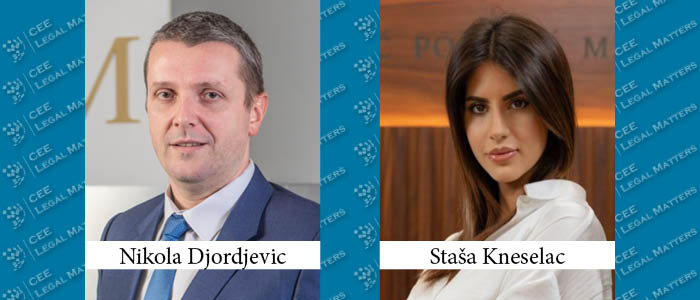Starting from 1 January 2024, the Council Directive (EU) 2022/2523 of 14 December 2022 on ensuring a global minimum level of taxation for multinational enterprise groups and large-scale domestic groups in the Union (hereinafter: Directive) will start to apply.
The principle that has led the EU to render this Directive is to reinforce the fight against aggressive tax planning within the internal market and to establish an efficient and coherent framework for the global minimum level of taxation at the Union level.
The Directive applies to entities located in the Union that are members of MNE groups or large-scale domestic groups that meet the annual threshold of at least EUR 750 000 000 of consolidated revenue. MNE (multinational enterprise) group is any group that includes at least one entity or permanent establishment that is not located in the jurisdiction of the ultimate parent entity (hereinafter: MNE). It is intended that this Directive puts an end to the tax practices of MNEs that allow them to shift profits to jurisdictions where they are subject to no or very low taxation by establishing a global minimum level of taxation.
The agreed minimum tax rate of 15% for corporate income tax represents fair tax competition amongst jurisdictions, according to the Directive. Any jurisdiction with an effective tax rate of below 15% is considered a low-taxed jurisdiction. The Directive introduces two rules which are called the Income Inclusion Rule (IIR) and the Undertaxed Profit Rule (UTPR). Under this set of rules, the parent entity of an MNE located in a member state should be obliged to apply the IIR to its share of top-up tax relating to any entity of the group that is low-taxed, whether that entity is located within or outside the Union. The UTPR should act as a backstop to the IIR through a reallocation of any residual amount of top-up tax in cases where the entire amount of top-up tax relating to low-taxed entities could not be collected by parent entities through the application of IIR. The effective tax rate of an MNE group in each jurisdiction where it carries out activities or of a large-scale domestic group should be compared to the agreed minimum tax rate of 15% in order to determine whether the MNE group or large-scale domestic group should be liable to pay a top-up tax and consequently should apply the IIR or the UTPR.
From a local perspective, the corporate income tax rate in the Republic of Serbia is 15%. However, the Serbian law has a tax incentive of a 10-year tax holiday for investments into fixed assets of a Serbian entity exceeding 1 billion RSD, provided that the Serbian entity employs for an indefinite period of time at least 100 new employees. In Montenegro, the corporate income tax rates are: 1) up to EUR 100,000 of taxable profit - 9%; 2) from EUR 100,000.01 to EUR 1,500,000.00 of taxable profit: EUR 9,000.00 + 12% on the amount over EUR 100,000.01; 3) over 1,500,000.01 euros of taxable profit: 177,000.00 euros + 15% on the amount over 1,500,000.01 euros.
It should be taken into account that the Directive is not applied directly to the local entities in Serbia and Montenegro. However, an ultimate parent entity of an MNE group, a tax resident of the EU, to which a local entity belongs has the primary obligation under the Directive to apply the IIR to its allocable share of top-up tax relating to all low-taxed constituent entities of an MNE group. This means that after the local entity uses tax incentive/tax rates from the previous Paragraph, its parent entity (MNE group) might have an obligation to pay top-up tax calculated in line with the Directive. Consequently, the MNE group as a whole could lose the tax benefit of conducting business in the region.
The impact of the Directive on the Serbian and Montenegrin market is subject to discussion. In regards to the standards imposed by the EU in the Directive, both Serbian and Montenegrin jurisdictions might be considered as low-taxed jurisdictions. Also, the Directive urges countries worldwide to implement measures similar to IIR. On the other hand, the Directive only concerns MNEs exceeding certain consolidated revenue thresholds and would not impact smaller entities, as well as local entities conducting business on the territory of Serbia and Montenegro. However, it is important to note that implementing measures like cancelling policies such as the 10-year tax holiday would affect the conducting of business of worldwide non-EU companies that have subsidiaries in the region if the country of the parent company does not apply a minimal tax rate policy as well as local domestic companies.
The question remains whether the countries will continue to apply their tax policies enforced up till the date of issuing this article or will they take a step further in harmonizing with the EU legislation and consider new ideas for differently structured incentives for attracting new investments. In any case, the process of harmonizing with the EU legislation will require the implementation of these measures. However, this all shall largely depend on the pursuance of Serbia and Montenegro to stay on the bumpy road to the Union.
By Nikola Djordjevic, Partner, and Stasa Kneselac, Associate, JPM


